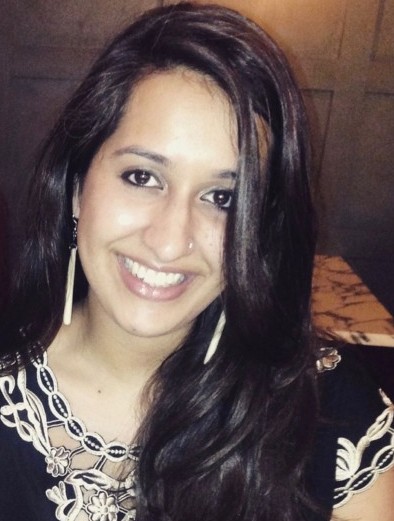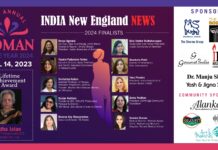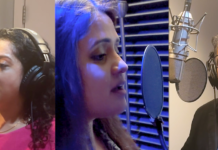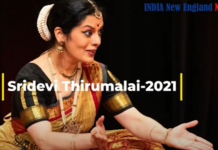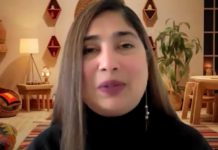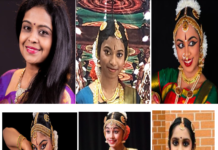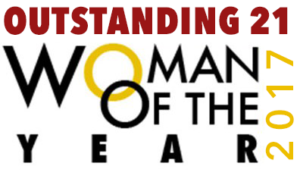 WALTHAM, MA–Aditi Mehta is the winner of 2017 Priscilla King Gray Award for Public Service. She has been all over the world, from Mumbai, where she conducted research on the role of non-profit in the city’s slums; to Washington D.C. where she served as an Assistant Project Manager for Telesis Corporation, a mission-driven affordable housing developer.
WALTHAM, MA–Aditi Mehta is the winner of 2017 Priscilla King Gray Award for Public Service. She has been all over the world, from Mumbai, where she conducted research on the role of non-profit in the city’s slums; to Washington D.C. where she served as an Assistant Project Manager for Telesis Corporation, a mission-driven affordable housing developer.
Currently, she is a doctoral candidate Urban Studies and Planning at the Massachusetts Institute of Technology (MIT), where she is the SAGE/Marilyn Jacobs Gittell Activist PhD Scholar with the Community Innovator’s Lab. Her work and research fuse the rigorous methods of social science with community organizing and on-the-ground activism in order to contribute to the democratic production of knowledge and social change. Mehta’s thesis explores the importance of public libraries in immigrant communities, specifically Boston’s Chinatown.
Her previous work includes research on developing data democratization projects and impact measures for grant-making at the Boston Foundation and neighborhood revitalization and storytelling projects in New Orleans as a Masters student in City Planning at MIT.

INDIA New England News: Please tell our readers about your work and what you enjoy most about it?
Aditi Mehta: I am a doctoral candidate in the Department of Urban Studies and Planning at MIT. I believe in research as a tool to achieve social justice and equity in the city. I also really enjoy teaching and love helping students make sense of their ideas and articulate their opinions.
INE: To which charitable, community and professional group do you belong and why?
AM: I am the SAGE/Marilyn Jacobs Gittell Activist PhD Scholar with the MIT Community Innovator’s Lab (CoLab). CoLab supports the development and use of knowledge from excluded communities to deepen civic engagement, improve community practice, inform policy, mobilize community assets, and generate shared wealth.
INE: What are your hobbies and interests?
AM: I have been an avid photographer since I was 14 years old and developed a print in my high school dark room. I minored in photography as an undergraduate at Cornell, and still try to have fun with the art as an adult. When I finish my dissertation, I am going to treat myself to a new camera.
INE: In what way do you feel you have positively influenced or served the local community and your company/organization and professional field?
AM: One of my most meaningful public service experiences in graduate school was helping to design and teach an urban sociology course about inequality inside prison, where half the students were incarcerated and the other half were visiting from MIT. Participants of the course called the class transformative. Conducting the class in this way generated new insights into sociological theory by more directly confronting the structural inequality the course sought to understand.
The MIT students were challenged to learn in an environment where the rules, both written and unwritten, were foreign to them and where they felt neither familiar with nor entitled to the space.
Incarcerated individuals and former prisoners are explicitly excluded from many civil and political rights that are often take for granted, and are pushed to the social and spatial margins of our society. Several of the imprisoned students in our class reflected that if they were not in prison, they would never have had the opportunity to participate in an MIT course given the places they came from. A RAND Corporation Study showed that participation in prison education, both academic (such as our class) and vocational programming, was associated with an over 40 percent reduction in recidivism.
INE: Your rare talent?
AM: I can quickly build trust with people, even strangers.
INE: Your favorite books?
AM: I was blown away by Junot Diaz’s “Brief and Wondrous Life of Oscar Wao” and Arudathi Roy’s “God of Small Things”. Lately, I have been mostly reading non-fiction related to my dissertation.
INE: Your favorite quotes?
AM: “Without new visions, we don’t know what to build, only what to knock down. We not only end up confused, rudderless, and cynical, but we forget that making a revolution is not a series of clever maneuvers and tactics, but a process that can and must transform us.”
– Robin D.G. Kelley, Freedom Dreams: The Black Radical Imagination
INE: Who inspires you the most?
AM: That’s easy – my mom because she is fearless and tireless.
INE: The one person you would like to meet and why?
AM: I would like to meet Maya Angelou because her writing [and] poems are beautiful and inspiring.
INE: Your core value you try to live by?
AM: I try to always have a generosity of spirit and compassion.



